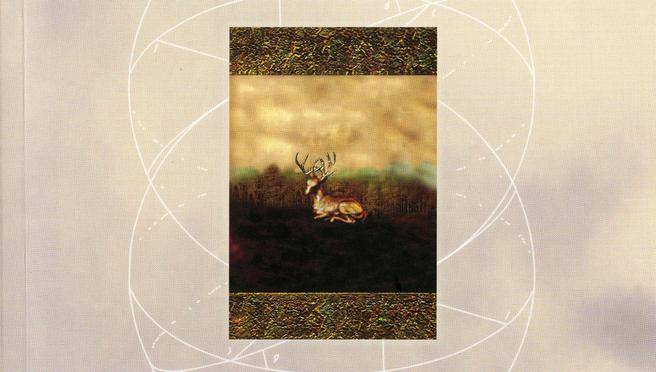The poetry of Bite Down Little Whisper draws on literature, history and mythology
To savour Don Domanski’s rhythms and sounds, Bite Down Little Whisper is meant to be read aloud. Whispered—late at night on the bus home after a long day of class, or early in the morning when travelling through the underground city.
Domanski, who was born and raised on Cape Breton Island, but now lives in Halifax, is no stranger to accolades, specifically that of the Governor General Award. Over the years, this award has become one of the most prestigious in Canada awarded in both French and English in seven categories. Domanski’s Wolf-Ladder, Stations of the Left Hand and Bite Down Little Whisper were all shortlisted for the award, and in 2007, All Our Wonder Unavenged won the coveted prize.

The book is divided into three sections: “Foresight by Earth,” “A Feral Trance,” and “The Light of Unoccupied Memory.” Every section touches upon science and mythology, the simple and complex, and the animate and inanimate.
With a glossary of terms at the back of the book, the reader is able to dive in further when the poet makes references to Taoism, Greek mythology, Egyptology, and the Celts. Not everyone may be familiar with the “painted child of dirt” from Epistle to Dr. Arbuthnot by Alexander Pope, or “piquerism” which refers to the “sexual practice of perforating the skin of another person.”
Domanski never resorts to the cliché—his words are lesser known, but deliberate. A breath of fresh air with a side of Oxford.
Like a Vermeer painting, Bite Down Little Whisper focuses on the everyday life, the ordinary and mundane. Day and night, darkness and light in the immense and miniscule are recurring themes. From the space “between clouds the flickering self” to “the small field mice performing their black ops in weedlight,” Domanski combines the uncombinable and connects the unconnectable in the most logical way.
Such is the case in “First Folio of the Unwritten,” when the speaker compares the “thin space between butterfly/and pin between skin and star”. Or “In The Dooryard” where the speaker ponders about the rapture of children, then describes the millipedes below typing: “keep your feet on the ground,” in Times New Roman.
Sometimes, the speaker is singular in a poem, sometimes the plural “we” or “us” is used; it is never specified. Depersonalizing the speaker allows the reader to fill in the blanks with their own thoughts and memories. Domanski’s metaphors take on a different meaning with the act of re-reading.
Bite Down Little Whisper is not a quick and easy read. It requires attention and the reader’s active participation in order to piece together the lack of punctuation, consecutive metaphors and the religious and mythological symbolism. But with a glossary of terms, and dictionary apps but a click away, there is no reason not to explore Domanski’s language.
Bite Down Little Whisper, which was shortlisted for the 2013 Governor General Award for English Language poetry is available for sale at Chapters Indigo.



